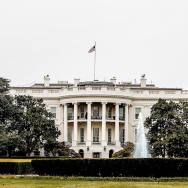A year into the coronavirus pandemic, 19% of all Americans report having a close friend or relative that has died from the virus, according to a survey from the Associated Press-NORC Center for Public Affairs Research at the University of Chicago.
The impact of COVID-19 has been especially severe among Black and Hispanic Americans, with about 3 in 10 saying they have a close friend or relative who has died from the coronavirus since March 2020. People who know a victim of the virus are also more inclined to worry about someone in their household contracting COVID-19.
Sixty-seven percent of Americans are at least somewhat worried that they or a member of their household will contract COVID-19, and 65% always wear a mask around other people outside the home. Sixty-nine percent favor requiring Americans to wear face masks outside the home around other people. College graduates, people age 45 and older, and Democrats are more likely to support wearing face masks.
In addition, the survey finds that two-thirds of the public think Americans have not taken the pandemic seriously enough. They are divided on whether people in their local community and people around the world reacted appropriately or minimized the problem. Few think there was any overreaction. Democrats are more likely than Republicans to say the pandemic was not taken seriously enough.
As the national government works to maintain a vaccination rate of 2 million shots per day, the majority of Americans say it is important that vaccines are distributed fairly. However, few are confident that this is currently the case. Similarly, most say that it is important that vaccines are being given first to people who need it most, but fewer are confident that is happening.
Most Americans continue to be at least somewhat worried about the virus. Concern was highest in March 2020 as the country first faced the coronavirus, and then again in July as many parts of the South and West faced surges. Since October, about three-quarters have been at least somewhat worried, including about 4 in 10 extremely or very worried. In the wake of the vaccine rollout, worries about contracting COVID-19 have dropped.
Still, Democrats remain more concerned than Republicans that they or someone in their household will be infected. In January, 58% of Democrats and 25% of Republicans were extremely or very worried about a COVID-19 infection in their household. Now 42% of Democrats and 18% of Republicans are extremely or very worried.
Seventy percent of Americans approve of President Joe Biden’s handling of the coronavirus pandemic—the issue for which he receives the highest marks. Forty-four percent of Republicans support his handling of the pandemic, more than any other issue.
Last spring, the public held considerably more favorable opinions of how their state and local officials had been handling the coronavirus outbreak compared to federal officials and Congress. But views of state and local handling of the pandemic have dropped.
Only 25% say their local community is doing a good job in handling the sign-up process for getting COVID-19 vaccines, and 31% feel like their local K-12 schools are handling COVID well. More, 46%, think their local public health officials have done a good job communicating the safety and effectiveness of COVID-19 vaccines.
In addition to wearing masks and practicing social distancing, many Americans either have or plan to get immunized against the virus. Twenty-two percent report receiving a vaccine already and another 30% say they will definitely get one once it is available to them. Thirty-three percent are on the fence, including 17% who say they probably will get vaccinated and 15% who say they probably won’t. Fifteen percent report they definitely will not get vaccinated.
The nationwide poll was conducted Feb. 25-March 1, 2021 using the AmeriSpeak® Panel, the probability-based panel of NORC at the University of Chicago. Online and telephone interviews using landlines and cell phones were conducted with 1,434 adults. The margin of sampling error is +/- 3.4 percentage points.
—This release was first published by NORC at the University of Chicago.

